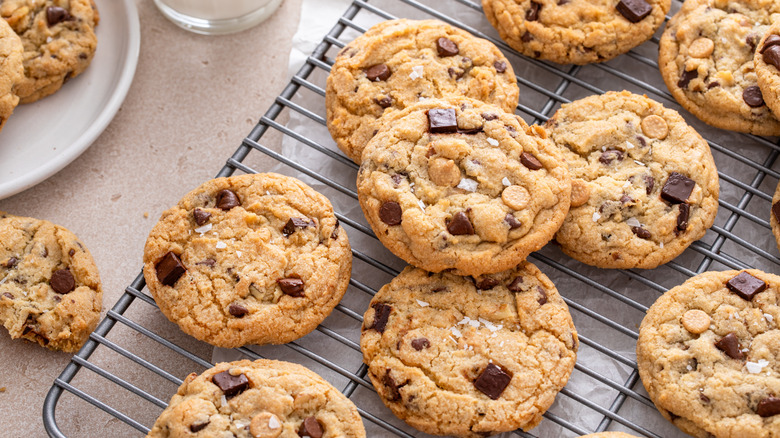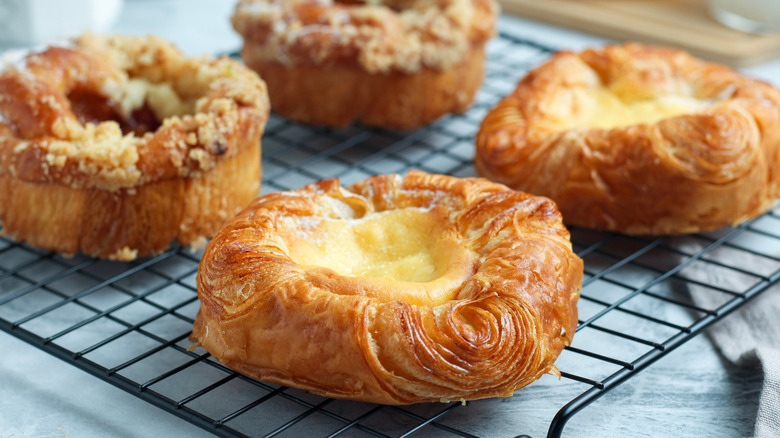Are Cookies Considered Pastries?
Cookies are one of the most iconic sweet treats in the bakery world. With so many different recipes that encompass all kinds of flavors, not to mention the cultural traditions that are attached to baking these specific goodies, cookies are a bakery staple. And while you're likely to find them in a pastry case, are they actually considered pastries? Food Republic spoke to Laura Kanya, the research and development chef at Ann Clark Ltd., to find out.
Most dictionaries define 'pastry' as a baked dough made from a mixture of flour, fat, and water — which kind of sounds like a cookie, right? According to Kanya, "Technically in broad scope[, cookies] are a pastry. But I would really refer to them as baked goods." When you think about it, an official pastry chef is way more likely to be making delicacies like coiled tahini buns or recipes that use phyllo dough or puff pastry, rather than the likes of a humble pastry. According to the expert, "Things that fall into the baked goods category, in my mind, are more approachable in technique and appearance."
While cookies are not quite sophisticated enough to truly earn the title of pastry, they are a great entry into the baking world — and certain recipes still require a bit more finesse, like perfecting the Italian pizzelle cookie. For clarity of advertising, however, try not to lump cookies into the pastry category to avoid confusion — even if they do qualify by dictionary definition.
What sets cookies apart from other pastries?
From an ingredients standpoint, if cookies are made of a flour and fat-based dough similarly to pastries, why don't the two treats fall in the same category? A worthy question that Laura Kanya thankfully had the answer to. "Cookies typically have a higher sugar content/ratio to flour than other pastries that are more dough-like with a higher flour content," she told Food Republic. You'll also notice that pastries are often focused on layering, where the dough acts more like a casing or vessel for inner filling, like in danishes and eclairs.
Additionally, because of the way the ingredients are combined, cookies are often cooked differently than pastries. According to Kanya, "Cookies ... can be baked at 350 [degrees Fahrenheit] or higher[,] unlike other pastries that can typically withstand lower temperatures between 300 and 350 [degrees Fahrenheit]." Pastries are clearly the more delicate of the desserts, so they require that low and slow heating process. They also demand more patience with assembly, as you have to properly fold the layers of dough and fat together — as opposed to cookies, where the ingredients are easily mixed and combined (although it is still possible to overmix your cookie dough).
In the end, it's about knowing the individual processes that go into creating cookies versus traditional pastries; and even though there are hundreds of recipes in both categories, there is a common starting point. Remember, just because a baked good is made from a dough, that doesn't make it a pastry — but it does make it delicious.


